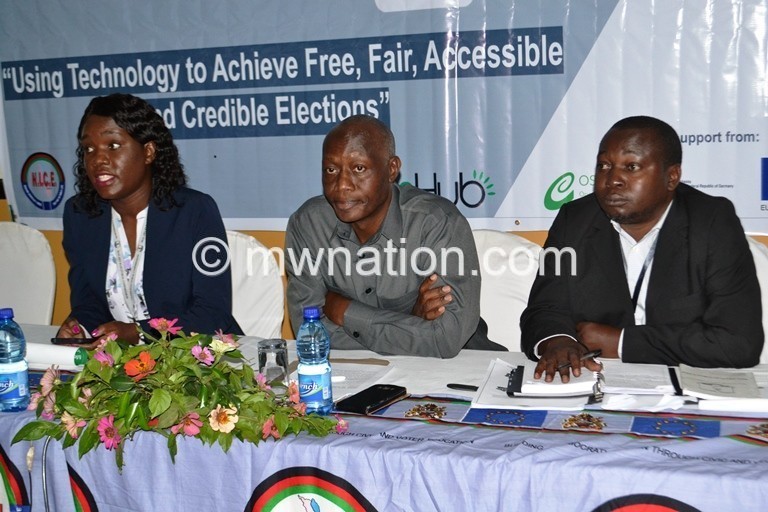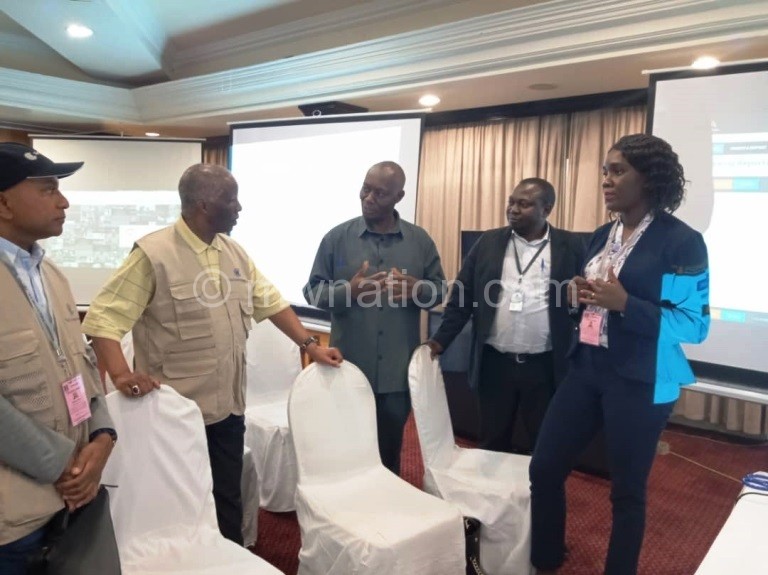Technology, youth and election monitoring
In the run-up to the May 21 Tripartite Elections, a group of Malawian youths sat inside a conference room at Mount Soche Hotel in Blantyre for one final briefing ahead of the elections.
Young men and women, some just past their adolescence and new voters, were glued to their smartphones while a few were making acquaintances and having group discussions on matters ranging from technology, fashion and other mundane things.

But it is technology that brought them under one roof. Among them were tech wizards and data officers selected from across the country with a responsibility that dwarfs the sum of their ages.
In total there were 20 data officers and five technical officers. The young men and women comprised the technical team of a unique election observation initiative.

They were joined in a separate room by a panel of experts, among them an eminent political analyst, a communication expert and a statistician.
In another room, there were representatives of political parties through its liaison committee, Centre for Multiparty Democracy (CMD), representative of the Malawi Police Service and other stakeholders.
For a few day to the polls, they were collecting information from 5 002 stationary monitors and 462 roving election observers across the country on issues surrounding Malawi’s presidential, parliamentary and local government elections.
This was the 2019 Election Situation Room (ESR), a collaborative initiative by the National Initiative for Civic Education (Nice) Trust and its technological partner, mHub. The aim was to track issues and incidences during elections for interventions by stakeholders, thereby contributing to the integrity of the election.
The ESR, an initiative that has been deployed in many countries such as Nigeria, Senegal, Tanzania and Zambia, was a coordinating centre at which data collected from the roving and stationary observers was analysed.
Among the young men and women was Blessings Chikoko, an 18-year-old business computer and information systems student at the National College of Information and Technology (Nacit) in Lilongwe.
He travelled from the capital city to join the group of the young men to work as a data entry clerk, filing in reports from across the country.
“My boss [at mHub] motivated me to take part in a project which gave me a perspective on actually being part of something bigger; to do something recognisable for my country. That gave me satisfaction as a citizen,” said Chikoko, an intern at mHub for six months prior to the project.
Twenty-three-year-old Aze Kandiero was team leader for data clerks. A business administration graduate, he was proud to participate in the initiative, noting that “democracy is not only about voting for leaders, but also citizens who well informed and have freedom to communicate.
“Technology has made information and freedom of communication easily accessible. The use of social media, television, radio have all raised the importance for citizens to vote in our country.”
Sangwani Longwe, 24, worked as ESR communications officer for the project and he said technology connects people and increase social engagement.
On a normal day, Longwe would be facilitating entrepreneurship trainings, conducting reports and ensuring good relationship between mHub and its internal and external stakeholders, but during the elections, he was responsible for conveying the purpose of ESR throughout the pre, during and post elections process.
“As communications officer, my role ensured good public relations and stakeholder engagements for free, fair, accessible and credible elections,” he said.
Those sentiments were backed by many visitors to the 2019 elections situation room, the online platforms or those who attended its regular press briefings held before, during and after the elections day.
Former South African president Thabo Mbeki, who was leader of the Commonwealth Observer Mission to the May 21 Tripartite Elections, visited the situation room a day before the polls. He is among those who were awed. Former Ghana president John Dramani Mahama also visited with his team of observers from the African Union.
Mbeki told the management of the ESR he was impressed by the innovation that he would love it replicated in his own country.
EU Ambassador for Malawi, Sandra Paeson, whose institution is main donor to Nice Trust, also commended the trust for the initiative, observing during a tour of the ESR that the timely statements by the ESR played a crucial role in providing much needed information to stakeholders hence leading to rapid addressing of emerging challenges.
Both Nice Trust executive director Ollen Mwalubunju and mHub founding chief executive officer Rachel Sibande are proud of the initiative.
Mwalubunju said the ESR was a quest to enhance the ability of Malawian citizens to participate in public life including democratic decision-making processes.
“The Election Situation Room is very important as it provides a mechanism for real time interventions to incidences as they happen during the election process,” says Mwalubunju.
On her part, Sibande said the situation drew experiences from similar election monitoring projects in southern Africa supported by the Open Society Initiative for Southern Africa (Osisa) but utilised locally developed technologies to respond to Malawi’s challenges.
“I believe the ESR contributed to the success of the elections because it provided an opportunity for over 5 462 observers to send in data on incidents related to the elections before the elections, on election day and after the elections.
“These observers were able to report in real time on incidents such as hate speech, intimidation, violence, bribery, destruction of property and even positive incidents,” she says.
Nandini Patel, a political scientist who was involved in the 2014 elections’ version of ESR, said that in 2019, the initiative was more organised with proper command structures.
She also noted that the intervention room and panel of experts enabled the 2019 ESR to make informed quick informed decisions.
For this project, mHub application software developers have developed two platforms.
Monica Madulira, a project manager at mHub and social media project manager explains the specialised internet based platforms the ESR team were using.
“The roving observers led the process of data collection which is sent using a dedicated SMS short-code and a secure android mobile application developed by mHub for use under the Election Situation Room,” she said.
Among the areas the observers had to report on through the standard election observer check list included categories such as human resource, voting procedures, voting materials and incidences that defined whether the elections were free, fair and credible.
Apart from the platforms, Nice Trust, a traditional key stakeholder in voter education and election management, was also inviting to citizens to send reports on any electoral incidences through an integrated SMS channel whose numbers were publicised widely across the country.
Thanks to its observers on the ground, ESR team ably dismissed fake news and proved credible stories. Every rumour though was being taken seriously. Both social media and mainstream media were used to collect information which the ESR Team leaders such as Nice Trust’s programme officer Gray Kalindekafe were sending to the field teams.
The back and forth travel of information continued throughout election day and vote counting. The next day after elections, the youth and their leaders were exhausted. But they were all proud to have taken part in a project that many—not only Mbeki—wants replicated in future elections.





